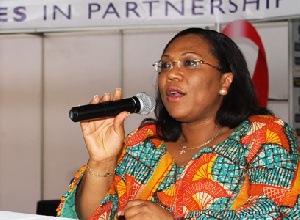Dwindling funds from external sources is likely to halt successes attained by Ghana if internal financial resources are not secured to sustain the great efforts, Dr. Fred Nana Poku, Technical Manager of the Ghana AIDS Commission (GAC) has said.
He said over 70 per cent of funds for HIV programmes in Ghana came from external sources, most especially the Global Fund, and with the gradual shifting of focus of the Fund, “it is likely to affect us heavily if serious attention is not given to HIV activities”.
Dr. Poku said this at an HIV training workshop for editors from selected media houses in the Greater Accra Region on Saturday.
He said though funding had been deployed from government sources, it was mainly for operational costs rather than programme intervention and added, “but funding from the private sector has, unfortunately, been minimal and remains largely untapped”.
Dr. Poku said adequate and sustainable funding of HIV was the core of the national response and there was a need to mobilize funding locally to meet the changing circumstances and expansion of HIV prevention, care and support programmes.
He said to ensure that local financial resources are tapped, GAC was interacting with the private sector, parliament and other institutions to encourage them to mobilize funds for the national response.
He appealed to the government to fulfill its international obligations on funding for the national response.
Listing some of the challenges facing the programmes of GAC, Dr. Poku mentioned low condom use during higher-risk sexual intercourse, low uptake of HIV services, frequent shortages of HIV commodities and inadequate technical capacity by community actors, and called for a behavioral change.
Giving the general overview of the national response to HIV and AIDS in Ghana, Dr. Poku said the national HIV prevalence had stabilized at 1.5 per cent in 2010 and declined further in 2011 and 2012 to 1.3 percent.
He said the 2012 sentinel surveillance report showed a reduction in national adult HIV prevalence from 3.6 in 2003 to 1.37 percent in 2012.
Prevalence among sex workers had also reduced from 35 percent in 2006 through 25 in 2009 to 11 percent in 2012 while that of the youth aged 15 to 24 had declined appreciably from 1.7 per cent to 1.3 per cent; showing Ghana was experiencing a reduction in new infections.
Ms. Golda Asante, Eastern Regional Technical Coordinator of the Ghana AIDS Commission, called on the media to help address the long standing challenge of stigma and discrimination.
The Director General of the Commission, Dr. Mrs. Angela El-Adas said in a speech read on her behalf that, in spite of the massive expansion and tremendous results achieved through the implementation of the multifaceted national strategies, there were several challenges in the area of evidence-informed policies and timely interventions.
She said the focus of this strategy was to reduce by half the HIV infections by 2015 using 2010 as the baseline, with a virtual elimination of mother to child transmission of HIV, as well as sustaining and scaling up the proportion of People Living With HIV (PLHIV) who are on treatment.
Dr. El-Adas said Ghana had been recognized globally for its successful multi-sector response and a 76 per cent reduction in new HIV infections among children due to its Prevention of Mother-To –Child-Transmission.
She commended the media for their continuous support in the national response and urged them to pursue further till the battle is won.
Click to view details



Health News of Tuesday, 15 April 2014
Source: GNA

















